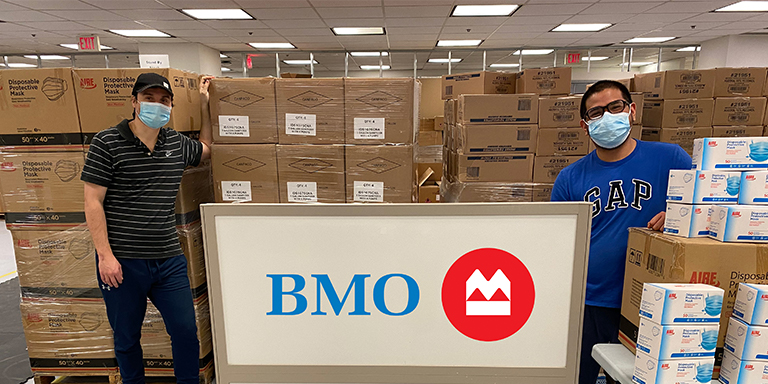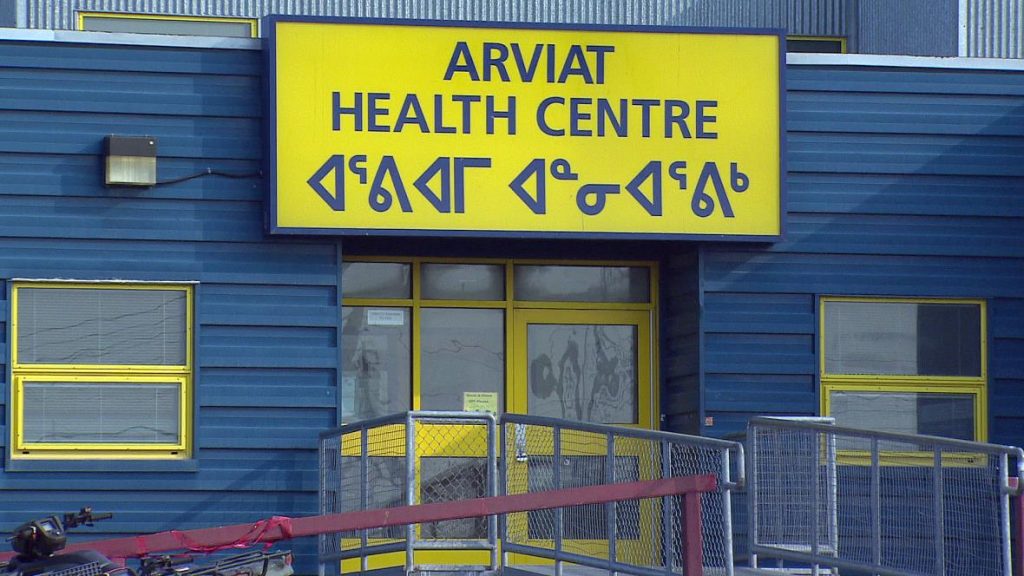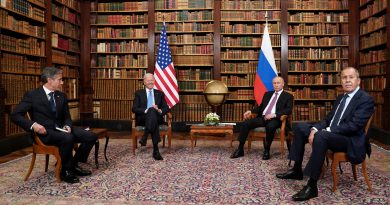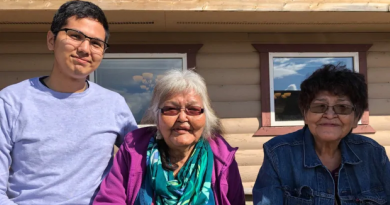BMO donates personal protective equipment to Inuit communities across Canada

As COVID-19 continues to keep Canada’s Arctic communities on edge, one of the country’s largest banks is teaming up with a national Inuit organization to deliver personal protective equipment to Inuit communities across the vast northern regions.
BMO Financial Group (BMO) is working with Inuit Tapiriit Kanatami (ITK) to distribute more than 113,900 masks, 563,000 wipes and 438 gallons of sanitizer to vulnerable Inuit communities throughout the Inuit homeland in Canada’s Arctic, stretching from Nunatsiavut on the northern Labrador coast, through Nunavik in northern Quebec, the Arctic territory of Nunavut and the Inuvialuit Settlement Region in the Northwest Territories.
“Inuit are especially vulnerable to severe impacts from COVID-19 as a result of long-standing inequalities affecting, among other things, the ability of many Inuit to access clean water for hand washing, and adequate housing for isolating if COVID-19 is suspected or confirmed,” said in a statement ITK president Natan Obed.
“We all have a role in addressing these gaps, and I am grateful to the team at BMO for this contribution of personal protective equipment for Inuit regions at this critical time.”

The PPE shipment to Inuit Nunangat is part of a larger program at BMO to get protective gear into dozens of Indigenous communities across Canada.
BMO is working with community leaders and organizations like ITK, Winnipeg Aboriginal Sport Achievement Centre (WASAC), First Nations Confederacy of Cultural Education Centres and Yellowquill College.
“At BMO, we have close and long-standing relationships with Indigenous customers and communities across Canada through our Indigenous Banking Group and our Indigenous Advisory Council,” said in a statement Mike Bonner, head of BMO Canadian Business Banking.
These ties have helped the bank identify needs in a number of First Nations, Métis and Inuit communities, Bonner added.
According to the Public Health Agency of Canada, First Nations peoples living on reserve have up to 69 per cent higher rates of the coronavirus infection than the general population.
“These disproportionate impacts among racialized and Indigenous communities are not due to biological differences between groups or populations,” Chief Public Health Officer Dr. Theresa Tam said in her annual report on the state of public health in Canada.
“Rather, they reflect existing health inequities that are strongly influenced by a specific set of social and economic factors – things like income, education, employment and housing that shape an individual’s place in society.”
To date nearly 150,000 face masks, 500 gallons of sanitizer and 750,000 wipes have been delivered to First Nations and Métis communities from coast to coast and to Inuit communities across Inuit Nunangat, according to Bonner.
Related stories from around the North:
Canada: Whitehorse 1st capital city in Canada to open COVID-19 vaccine clinics to all adults, CBC News
Finland: Jobless huskies in Arctic Finland travelling south for work as COVID-19 puts breaks on winter season, Yle News
Denmark/Greenland: Greenland authorities buoyed by high demand for COVID-19 vaccine, Eye on the Arctic
Iceland: Iceland institutes new COVID-19 border measures, Eye on the Arctic
Norway: Norway extends border closure with Finland due to pandemic, The Independent Barents Observer
Russia: Norway closes borders over fears of virus, but exempts Russian fishermen from severely infected border region, The Independent Barents Observer
Sweden: Swedes caught in Norway border limbo, Radio Sweden
United States: Negative COVID-19 test no longer required to enter Alaska, The Associated Press



